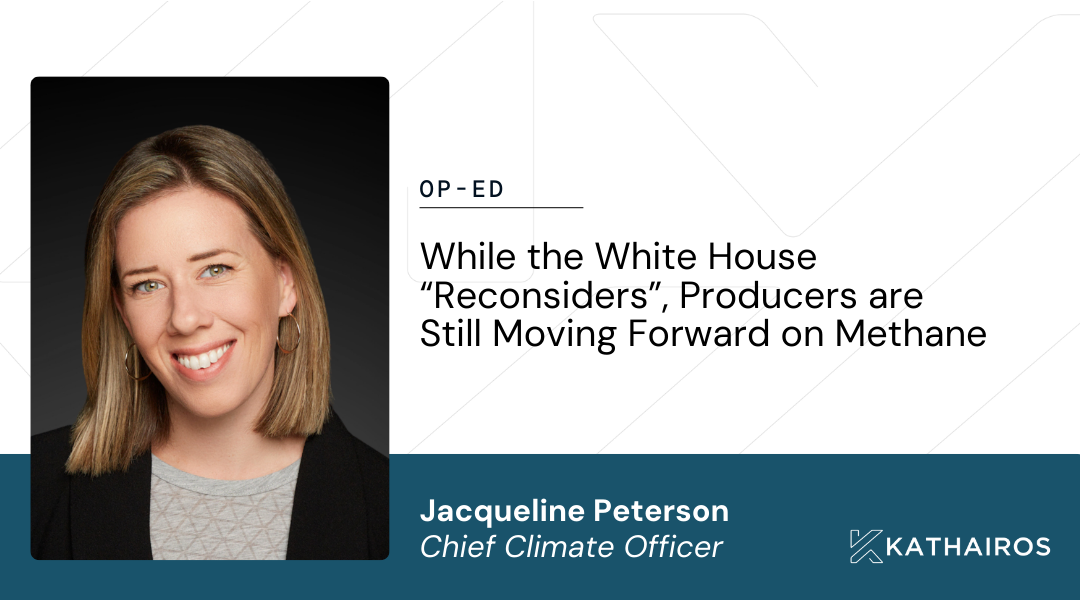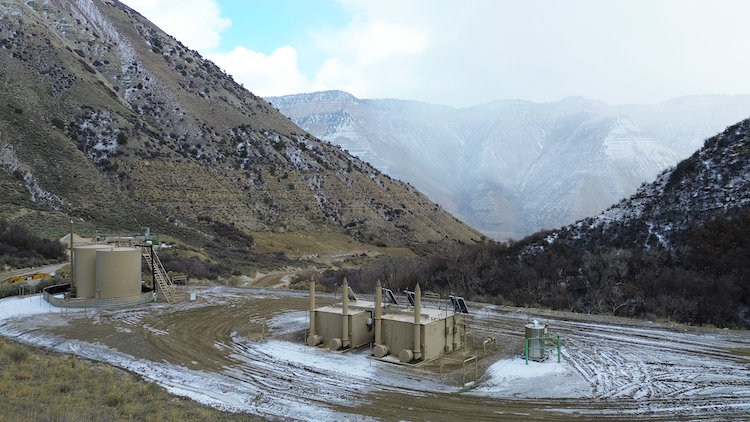
Kathairos has emerged as the leading North American solution for methane elimination from pneumatics, with more than 1,000 systems in operation across North America and over 40 major oil and gas producer partners.
In this post
Canada has taken a significant leap in climate action with its new methane regulations, announced at COP28 by Environment Minister Steven Guilbeault. Aiming for a bold 75% reduction in oil and gas methane emissions by 2030. He states, “Lowering methane emissions... is one of the fastest and most cost-effective ways we can cut the pollution fueling climate change.”
This initiative aligns closely with the U.S.'s recent methane regulations, fostering a North American synergy in responsible energy production. Central to these regulations are strategies like the elimination of routine venting and flaring, and a focus on advanced leak detection and repair. Echoing Canada’s commitment, U.S. Special Presidential Envoy for Climate John Kerry lauded the move, noting it as essential for limiting global warming.
The collaborative North American approach promises not only environmental benefits but also economic and health advancements, as outlined by Health Minister Mark Holland and Energy Minister Jonathan Wilkinson. These measures demonstrate Canada's leading role in global climate initiatives and its dedication to transforming pledges into impactful actions.
The regulations align with Canada’s 2025 target of a 40 to 45 percent reduction below 2012 levels and contribute to the Global Methane Pledge of reducing human-caused methane emissions by at least 30 percent from 2020 levels by 2030.
Canada's decisive action not only addresses the urgency of methane emission reductions but also underscores the nation's commitment to a cleaner, healthier environment and sustainable energy practices.
In conclusion, Canada's bold steps at COP28, aim for a significant reduction in methane emissions, and reflect a deep commitment to environmental sustainability. This forward-thinking approach creates an environment where innovative and efficient methane mitigation become increasingly relevant and vital in achieving these ambitious national goals.
Explore more posts from Kathairos
.jpg)
Decarb Digest, Issue 01: Discover Why Energy Leaders Aren’t Waiting on Washington

Op-Ed: While the White House “reconsiders”, producers are still moving forward on methane

